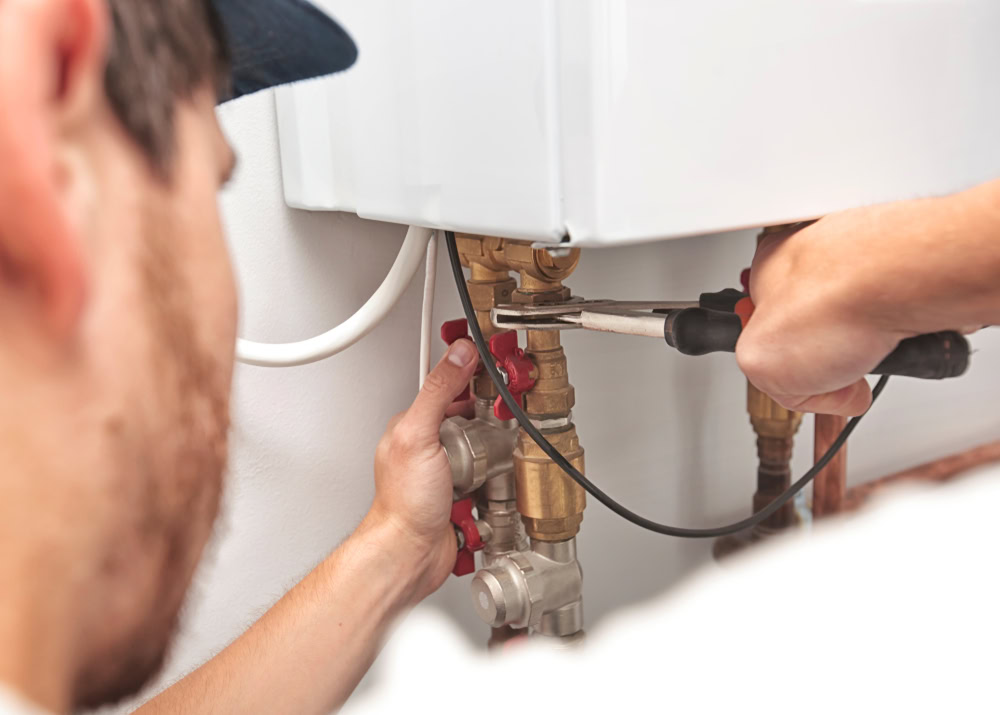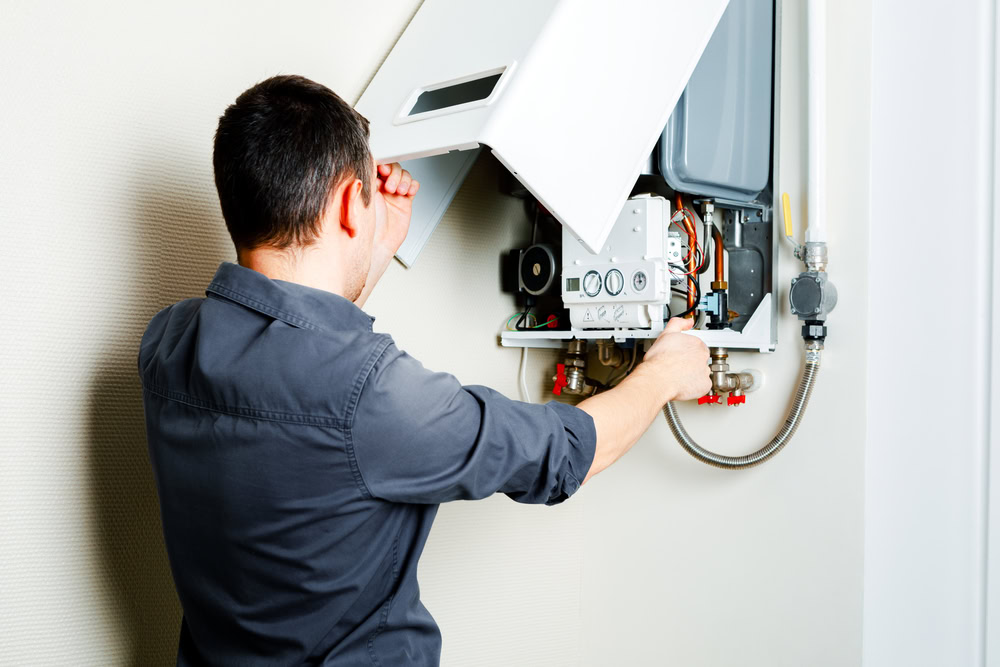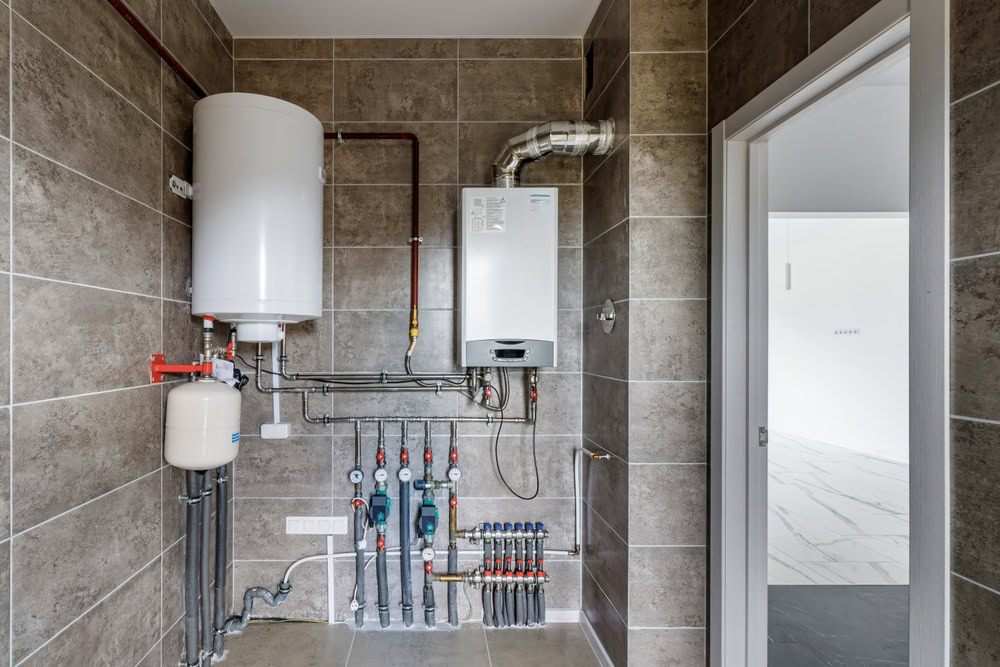Summary:
How Often Should You Really Change Your HVAC Air Filter
The standard advice is every 30-90 days, but that’s not the whole story. Your actual timeline depends on factors most people never consider.
If you have pets, kids, or live near busy roads in Queens or Nassau County, you’re looking at monthly changes. Same goes if anyone in your house has allergies or asthma. Clean air isn’t just comfort – it’s necessity.
Homes without pets or special air quality needs can usually stretch to 60-90 days. But here’s the thing: waiting too long doesn’t just affect your air quality. It puts your entire heating system at risk.
Signs Your Filter Needs Changing Right Now
Don’t wait for your calendar reminder. Your system will tell you when it’s struggling.
Look at your filter. If it’s gray, brown, or you can’t see light through it, it’s done. A dirty filter blocks airflow, forcing your boiler and heating system to work overtime just to maintain temperature.
You’ll notice your energy bills creeping up first. Then comes the real problem – your boiler starts cycling on and off more frequently, trying to compensate for restricted airflow. This constant strain leads to component wear and eventual breakdowns.
Other warning signs include dust accumulating faster than usual around your home, stuffiness even when the system’s running, and longer heating cycles. Your system is working harder but delivering less comfort.
The worst part? By the time you notice these symptoms, damage may already be happening inside your boiler. Overworked systems develop problems that turn into emergency boiler repair calls – usually when temperatures drop and you can least afford to be without heat.
What Happens When You Skip Filter Changes
A clogged filter doesn’t just reduce air quality. It creates a cascade of problems throughout your heating system that can end in costly boiler repairs.
When airflow gets restricted, your boiler’s heat exchanger can’t dissipate heat properly. This causes overheating, which triggers safety shutoffs. Your system cycles on and off repeatedly, never reaching proper operating efficiency.
Over time, this stress damages critical components. Heat exchangers crack. Blower motors burn out from working against restricted airflow. Gas boiler repair and oil boiler repair calls often trace back to this simple maintenance issue.
Nassau County and Queens residents know winter heating failures aren’t just inconvenient – they’re dangerous. Pipes freeze, families get cold, and emergency boiler repair costs spike during peak season when everyone needs service at once.
The irony is that a $15 filter change could prevent a $500+ repair bill. But most homeowners don’t make the connection until they’re dealing with a broken heating system and learning about boiler troubleshooting the hard way.
Even worse, repeated overheating shortens your boiler’s lifespan significantly. What should be a 15-20 year system might need boiler replacement in 10-12 years, simply because dirty filters forced it to work too hard for too long.
The Right Way to Choose and Change Your HVAC Filter
Not all filters are created equal, and the wrong choice can cause as many problems as a dirty one.
Check your system’s specifications before buying. Higher MERV ratings filter more particles but also restrict airflow more. Most residential systems work best with MERV 8-11 filters – enough filtration without overworking your boiler.
Installation matters too. Make sure arrows on the filter frame point toward your system, not away from it. A backwards filter reduces efficiency and can damage your equipment.
Filter Types That Actually Work for New York Homes
Living in Nassau County or Queens means dealing with specific air quality challenges. Traffic pollution, seasonal allergens, and older building dust all affect what kind of filter you need.
Pleated filters offer the best balance of filtration and airflow for most homes. They capture more particles than basic fiberglass filters without restricting airflow enough to stress your boiler. Expect to pay $10-20 per filter, but they’re worth it for the protection they provide.
Electrostatic filters sound appealing because they’re washable, but they often don’t maintain consistent filtration as they age. Plus, if you forget to clean them regularly, you’re back to the same problems as a dirty disposable filter.
High-efficiency filters (MERV 13+) might seem like the best choice, but they can actually cause problems in older systems. The increased airflow restriction forces your boiler to work harder, potentially leading to the same overheating issues as a clogged standard filter.
For most Nassau County and Queens homes, a MERV 8-10 pleated filter changed every 30-60 days provides the right balance. You get good air quality without putting unnecessary strain on your heating system or setting yourself up for unexpected boiler service calls.
How to Set Up a Filter Change System That Actually Works
Good intentions don’t keep your boiler running. You need a system that makes filter changes automatic, not something you remember to do.
Buy filters in bulk – 6-12 at a time. Store them near your HVAC system so you can’t make excuses about not having one available. Write the installation date on each filter with a marker so you know exactly how long it’s been in service.
Set phone reminders for every 30 days, not every 90. It’s easier to check monthly and decide the filter’s fine than to forget for four months and deal with boiler problems later. Most people underestimate how quickly filters get dirty, especially during heavy heating season.
Keep a flashlight near your system. Half the reason people skip filter checks is because they can’t see what they’re doing. Make the process as simple as possible, and you’re more likely to stick with it.
Consider signing up for a boiler maintenance plan that includes filter monitoring. Professional technicians can spot developing problems before they become emergency repairs, and they’ll remind you about filter changes as part of regular service visits.
The goal is preventing problems, not reacting to them. A good filter maintenance routine keeps your boiler running efficiently and helps you avoid those middle-of-winter emergency repair calls when you need heat most.
Keep Your Heating System Running With Simple Maintenance
Your air filter is a small part that makes a big difference. Change it regularly, and you’ll avoid most of the heating problems that leave Nassau County and Queens families dealing with emergency repairs during winter.
The math is simple: spend $15-20 every month or two on filters, or risk hundreds in boiler repair costs when your overworked system finally gives up. Most heating emergencies are preventable with basic maintenance.
When you do need professional help with boiler service, boiler troubleshooting, or emergency repairs, we have the experience to get your system running reliably again.





